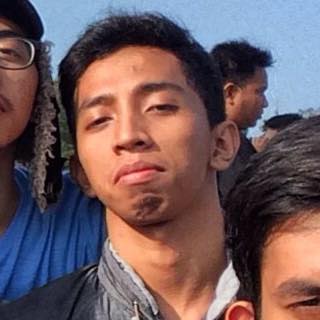
516read |
download |
| bookmark |
Apa itu knowledge base
- knowledge
- Administrator
- Sun, 11-Dec-2016
- Test akhir

Knowledge is a familiarity, awareness or understanding of someone or something, such as facts, information, descriptions, or skills, which is acquired through experience or education by perceiving, discovering, or learning.
Knowledge can refer to a theoretical or practical understanding of a subject. It can be implicit (as with practical skill or expertise) or explicit (as with the theoretical understanding of a subject); it can be more or less formal or systematic.[1] In philosophy, the study of knowledge is called epistemology; the philosopher Plato famously defined knowledge as "justified true belief", though this definition is now agreed by most analytic philosophers to be problematic because of the Gettier problems. However, several definitions of knowledge and theories to explain it exist.
Knowledge acquisition involves complex cognitive processes: perception, communication, and reasoning;[2] while knowledge is also said to be related to the capacity of acknowledgment in human beings.[3]
Contents
- 1 Theories of knowledge
- 2 Communicating knowledge
- 3 Situated knowledge
- 4 Partial knowledge
- 5 Scientific knowledge
- 6 Religious meaning of knowledge
- 7 See also
- 8 References
- 9 External links
Theories of knowledge
Robert Reid, Knowledge (1896). Thomas Jefferson Building, Washington, D.C.
See also: Epistemology
The eventual demarcation of philosophy from science was made possible by the notion that philosophy's core was "theory of knowledge," a theory distinct from the sciences because it was their foundation... Without this idea of a "theory of knowledge," it is hard to imagine what "philosophy" could have been in the age of modern science.
— Richard Rorty, Philosophy and the Mirror of Nature
The definition of knowledge is a matter of ongoing debate among philosophers in the field of epistemology. The classical definition, described but not ultimately endorsed by Plato,[4] specifies that a statement must meet three criteria in order to be considered knowledge: it must be justified, true, and believed. Some claim that these conditions are not sufficient, as Gettier case examples allegedly demonstrate. There are a number of alternatives proposed, including Robert Nozick's arguments for a requirement that knowledge 'tracks the truth' and Simon Blackburn's additional requirement that we do not want to say that those who meet any of these conditions 'through a defect, flaw, or failure' have knowledge. Richard Kirkham suggests that our definition of knowledge requires that the evidence for the belief necessitates its truth.[5]
In contrast to this approach, Ludwig Wittgenstein observed, following Moore's paradox, that one can say "He believes it, but it isn't so," but not "He knows it, but it isn't so."[6] He goes on to argue that these do not correspond to distinct mental states, but rather to distinct ways of talking about conviction. What is different here is not the mental state of the speaker, but the activity in which they are engaged. For example, on this account, to know that the kettle is boiling is not to be in a particular state of mind, but to perform a particular task with the statement that the kettle is boiling. Wittgenstein sought to bypass the difficulty of definition by looking to the way "knowledge" is used in natural languages. He saw knowledge as a case of a family resemblance. Following this idea, "knowledge" has been reconstructed as a cluster concept that points out relevant features but that is not adequately captured by any definition.[7]
Communicating knowledge
Los portadores de la antorcha (The Torch-Bearers) – Sculpture by Anna Hyatt Huntington symbolizing the transmission of knowledge from one generation to the next (Ciudad Universitaria, Madrid, Spain)
Symbolic representations can be used to indicate meaning and can be thought of as a dynamic process. Hence the transfer of the symbolic representation can be viewed as one ascription process whereby knowledge can be transferred. Other forms of communication include observation and imitation, verbal exchange, and audio and video recordings. Philosophers of language and semioticians construct and analyze theories of knowledge transfer or communication.
While many would agree that one of the most universal and significant tools for the transfer of knowledge is writing and reading (of many kinds), argument over the usefulness of the written word exists nonetheless, with some scholars skeptical of its impact on societies. In his collection of essays Technopoly, Neil Postman demonstrates the argument against the use of writing through an excerpt from Plato's work Phaedrus (Postman, Neil (1992) Technopoly, Vintage, New York, pp 73). In this excerpt, the scholar Socrates recounts the story of Thamus, the Egyptian king and Theuth the inventor of the written word. In this story, Theuth presents his new invention "writing" to King Thamus, telling Thamus that his new invention "will improve both the wisdom and memory of the Egyptians" (Postman, Neil (1992) Technopoly, Vintage, New York, pp 74). King Thamus is skeptical of this new invention and rejects it as a tool of recollection rather than retained knowledge. He argues that the written word will infect the Egyptian people with fake knowledge as they will be able to attain facts and stories from an external source and will no longer be forced to mentally retain large quantities of knowledge themselves (Postman, Neil (1992) Technopoly, Vintage, New York,pp 74).
Classical early modern theories of knowledge, especially those advancing the influential empiricism of the philosopher John Locke, were based implicitly or explicitly on a model of the mind which likened ideas to words.[8] This analogy between language and thought laid the foundation for a graphic conception of knowledge in which the mind was treated as a table, a container of content, that had to be stocked with facts reduced to letters, numbers or symbols. This created a situation in which the spatial alignment of words on the page carried great cognitive weight, so much so that educators paid very close attention to the visual structure of information on the page and in notebooks.[9]
Media theorists like Andrew Robinson emphasise that the visual depiction of knowledge in the modern world was often seen as being 'truer' than oral knowledge. This plays into a longstanding analytic notion in the Western intellectual tradition in which verbal communication is generally thought to lend itself to the spread of falsehoods as much as written communication. It is harder to preserve records of what was said or who originally said it – usually neither the source nor the content can be verified. Gossip and rumors are examples prevalent in both media. As to the value of writing, the extent of human knowledge is now so great, and the people interested in a piece of knowledge so separated in time and space, that writing is considered central to capturing and sharing it.
Major libraries today can have millions of books of knowledge (in addition to works of fiction). It is only recently that audio and video technology for recording knowledge have become available and the use of these still requires replay equipment and electricity. Verbal teaching and handing down of knowledge is limited to those who would have contact with the transmitter or someone who could interpret written work. Writing is still the most available and most universal of all forms of recording and transmitting knowledge. It stands unchallenged as mankind's primary technology of knowledge transfer down through the ages and to all cultures and languages of the world.[citation needed][disputed – discuss]
 Bahasa
Bahasa
 English
English 

